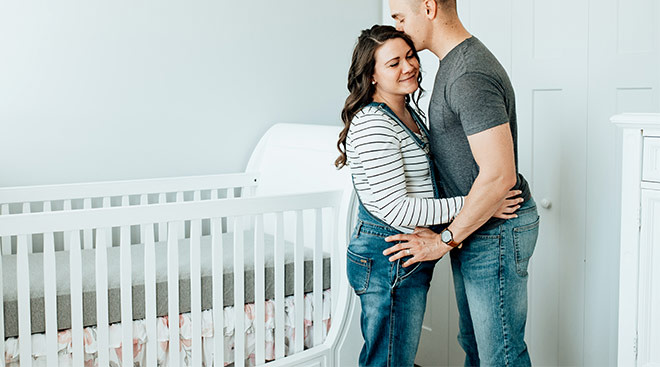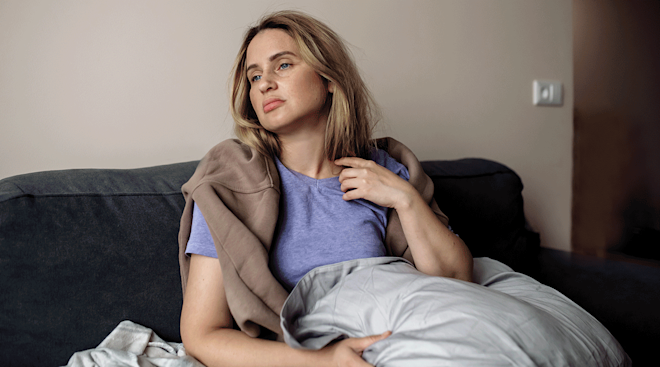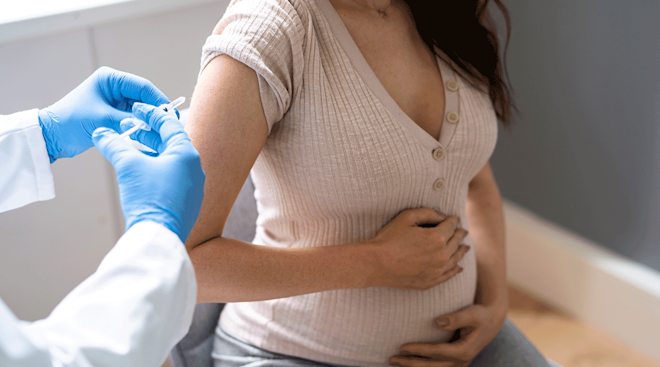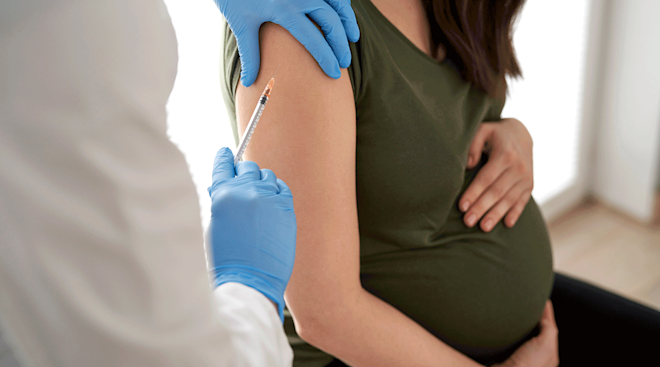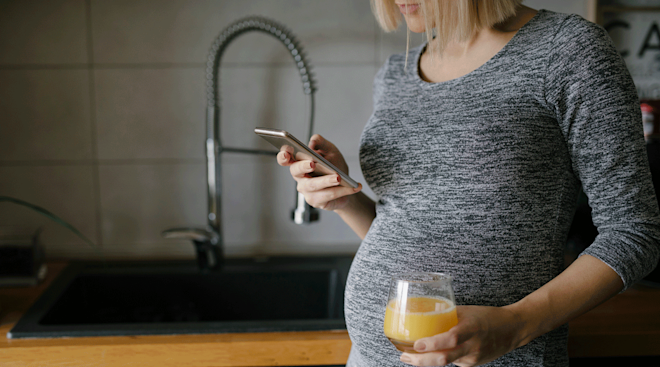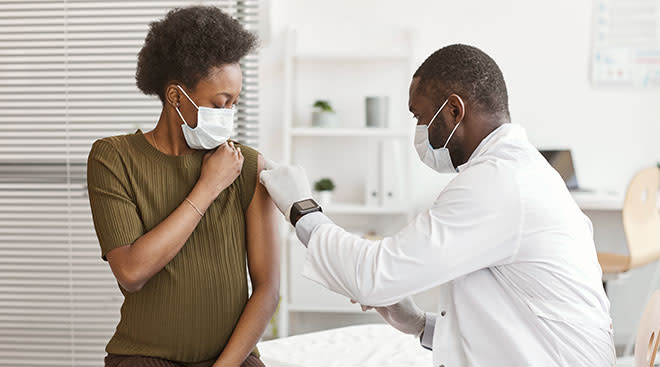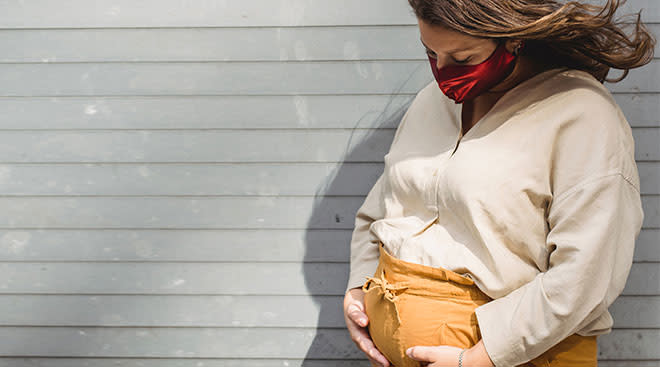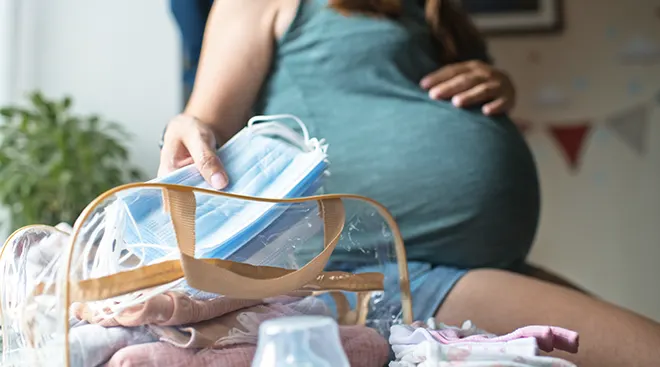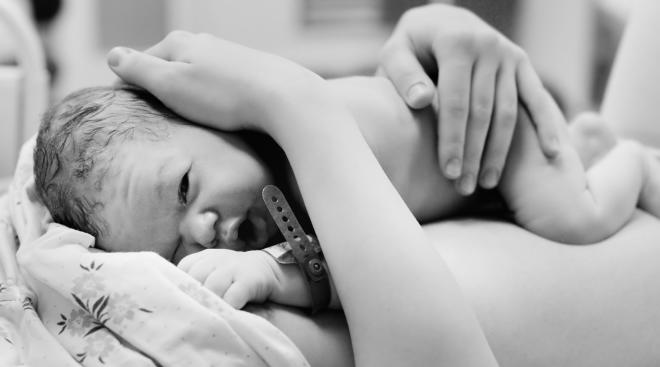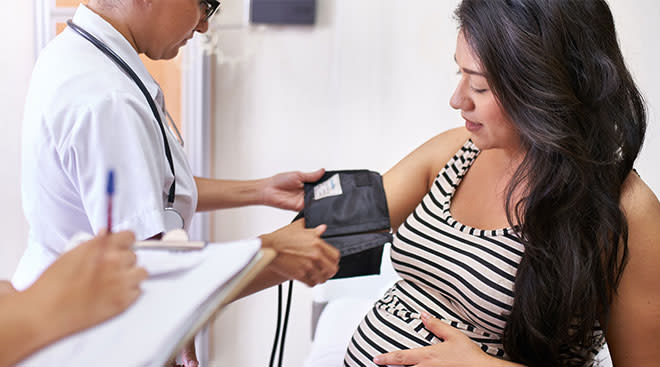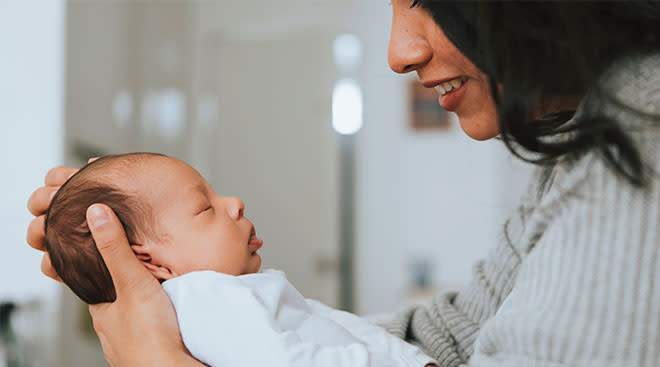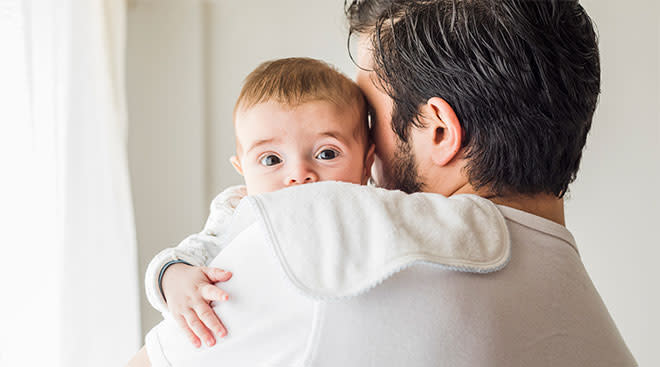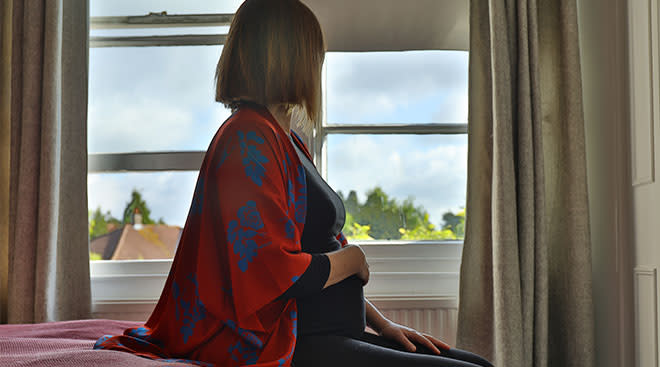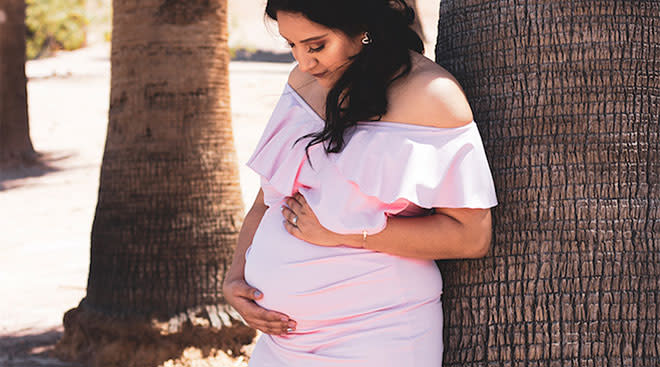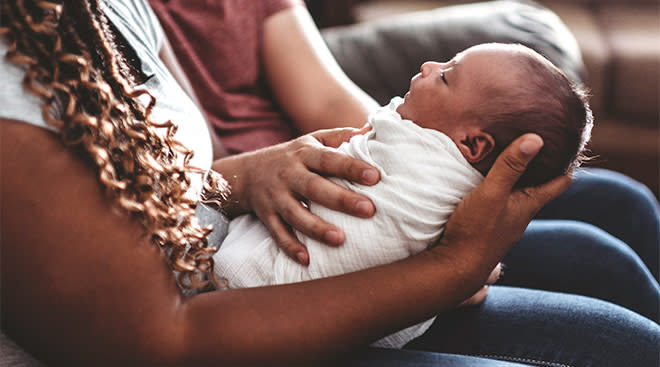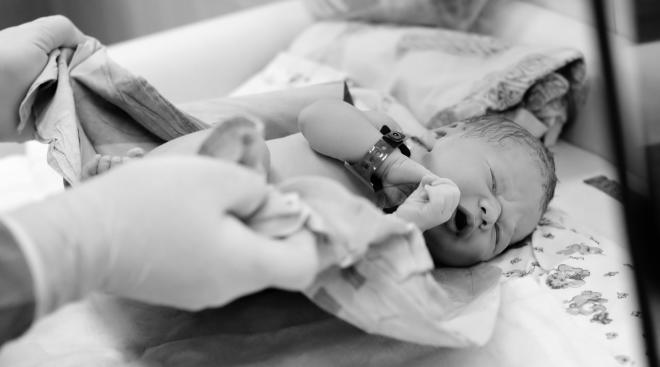How to Adjust Your Birth Plan for COVID-19
Giving birth in the era of the coronavirus pandemic requires some extra legwork when it comes to crafting your birth plan. Take it from Talitha Phillips, doula and CEO of Claris Health, a nonprofit health clinic. Twice in the past few weeks she has had to leave the laboring women she was working with at the entrance of the emergency room with their spouses, since the hospital was allowing only one support person to be present for birth. “It’s been heartbreaking to leave someone at the door during the most intense points of their labor.”
Many hospitals and birthing centers have changed their protocols in an attempt to reduce the risk of COVID-19 contagion. Knowing exactly what those rules are before you give birth will go a long way in helping you set expectations, tweak your birth plan and ease your mind during these troubling times.
We all know birth plans are subject to change, even when there isn’t a pandemic going on—after all, nobody can control how childbirth goes, and sometimes you have to adapt your plans to fit the reality you’re facing. Still, it’s a good idea to lay out your wishes for considerations like:
- Whether you’d like any pain medication during labor
- The kind of environment you’d like to create (Music? Dimmed lights? Essential oils?)
- How much freedom of movement you’d like to have during labor
- Preferences for fetal monitoring and birthing positions
- Delayed cord clamping
- Skin-to-skin contact with baby
- Circumcision
- Delayed first bath
- And more
All of these things are still important despite the COVID-19 precautions your health care provider and/or hospital may be taking. Your doctor and nurses are there for you and will try to honor your birth plan as much as possible, says Beth Battaglino, RN, a maternal-fetal nurse and CEO of HealthyWomen, a nonprofit provider of health information. “Our priority is making sure mom and baby are safe—everything we do is done to protect the patients and newborns,” she says.
Fully researching these things well in advance of your due date will help you answer the two questions that the coronavirus has pushed to the top: Who you choose to be with during labor and birth and where you will deliver.
A lot of moms-to-be are wondering: is it safe to give birth in a hospital right now? While every woman has the right to choose where to give birth, the American College of Obstetricians and Gynecologists (ACOG) says the safest places to deliver are still a hospital, hospital-based birth center or accredited freestanding birth center.
Hospitals and health care providers are taking precautions to mitigate the spread of COVID-19 and make things safe for moms, including screening people for COVID-19 symptoms at the hospital entrance (they’ll likely take your temperature and ask questions about how you’re feeling and who you’ve been in contact with), limiting the number of visitors you’re allowed, instructing your care team to wear masks and face shields, isolating patients who are symptomatic and shortening the length of your hospital stay. “We’re on high alert,” says Battaglino. “We’re making sure our patients stay safe, taking all the precautions and, when we hear of additional rules, implementing them quickly.”
Call your hospital to find out everything you can about their protocols. Some questions you may want to ask:
- Where do I enter the hospital?
- Who can come visit me?
- Can my partner stay with me through my postpartum recovery?
- Will I get to visit with a lactation consultant? If not, are they available via video or web conference?
- Will I be discharged early? If so, what supports are in place for follow-ups?
- What are the protocols if I test positive for Covid-19?
The last question may be the kicker: If you test positive for the coronavirus, you’ll likely be separated from other mothers on the labor and delivery floor and potentially be isolated from your baby just after birth to protect them, says Battaglino. “That could be problematic for breastfeeding, so we will make sure Mom is pumping,” she said.
If the answers to the questions above make you feel really uncomfortable, you can consider options other than a hospital, like a licensed birth center or a home birth with a certified nurse midwife. “You need to understand the system you’re stepping into,” says Phillips, noting that while the new rules are designed to protect new mothers, they can make you feel unsettled.
One of the important considerations for your birth plan: Choose your support partner wisely, says Battaglino. Hospitals across the country are taking extra precautions to help slow the spread of the coronavirus, and while policies vary at each hospital, many are limiting the number of people you can have with you during labor and delivery, often capping it at a single birth partner for your entire stay. “They will be with you as you go into delivery, and after that there is no swapping out,” she says.
A lot of expectant women are opting to have their spouse with them, but others may choose to have a family member, friend or doula in the room who is more familiar with childbirth and can help guide them through labor. If your birth partner isn’t well-versed in labor positions, breathing techniques and natural pain management methods, it’s smart to practice those ahead of time.
Even if you do plan to stick with your spouse as your birth partner, hiring a doula still may be worth it—she can help prepare you two for how to navigate labor, plus you can labor at home with her as long as you’re able. Once you get to the hospital, you can use FaceTime, Zoom or another web conferencing app to connect with your doula if she isn’t allowed in (be sure to add this into your birth plan so it’s top of mind for you and your partner once you’re settled in your room). “A calming, familiar voice can be really helpful,” says Phillips. “If you’ve labored with someone for 24 hours at home and then they’re gone, that can be difficult.”
All the standard items to pack in your hospital bag still apply—you’re going to need clothes, toiletries, baby clothes and a car seat (though if your stay may be shortened, you might need fewer pairs of things). But as you’re packing, keep in mind that when it’s time to come home again, you don’t want to transport any germs your things may have picked up from the hospital into your house—so choose to bring things you don’t mind tossing.
“Don’t wear your good slippers in the hospital. Bring in disposable ones you can throw away before leaving,” says Battaglino. “The same goes for your pajamas: Make sure they’re not your most expensive pair. Have them be ones you don’t mind discarding or bleaching when you get home.” The same is true for your overnight bag—a small suitcase that you can wipe down is better than a cloth bag, she says.
Lastly, know that plenty of healthy babies are being born every day at hospitals, despite all the distress brought on by the pandemic. Do the best with the information you have, and try to stay as present as you can.
About the experts:
Talitha Phillips is a certified labor and postpartum doula. She also serves as the CEO of Claris Health, a nonprofit health clinic in the Los Angeles area, where she has worked for nearly 20 years.
Beth Battaglino, RN, is the CEO of HealthyWomen, a nonprofit provider of health information that has been recognized by Forbes and O, The Oprah Magazine as one of the top women’s health websites. She is also a practicing nurse in maternal child health at Riverview Medical Center in Red Bank, New Jersey.
Please note: The Bump and the materials and information it contains are not intended to, and do not constitute, medical or other health advice or diagnosis and should not be used as such. You should always consult with a qualified physician or health professional about your specific circumstances.
Plus, more from The Bump:
Navigate forward to interact with the calendar and select a date. Press the question mark key to get the keyboard shortcuts for changing dates.
































